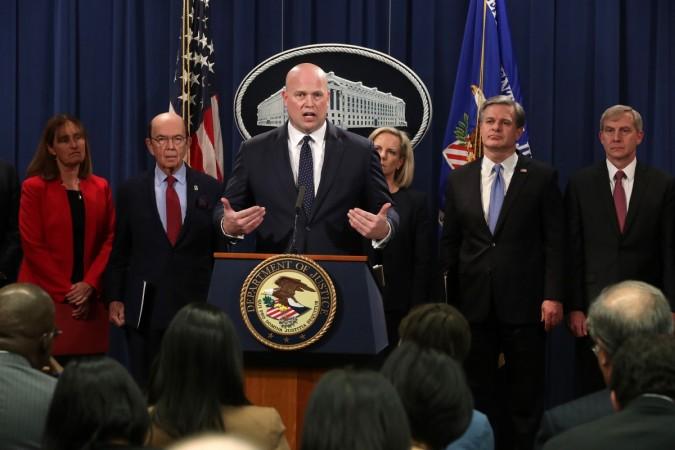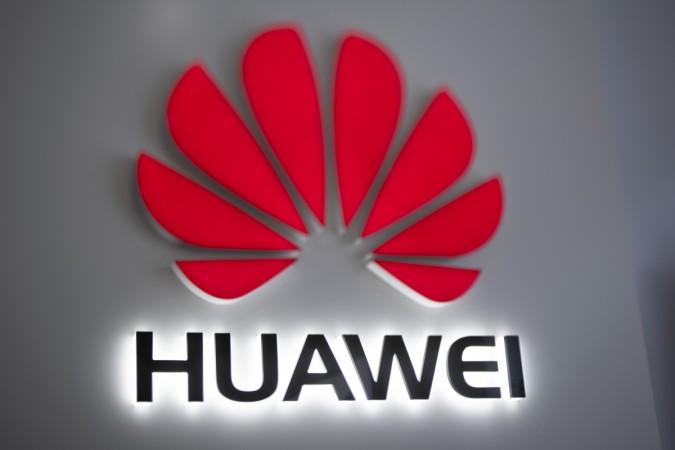
The trade tussle between the United States and China is set to deepen as the US filed two criminal charges against equipment maker Huawei on Monday, January 28.
The Justice Department has accused Huawei of trying to steal trade secrets from T-Mobile promising payment to employees stealing confidential information, and violating Iran sanctions. In addition, the agency has also unveiled charges against Huawei's chief financial officer Meng Wanzhou and is seeking her extradition to the US.
Wanzhou was arrested by the Canadian officials at the Vancouver airport on December 1 on behalf of the US.
Today we are announcing that we are bringing criminal charges against telecommunications giant Huawei and its associates for nearly two dozen alleged crimes," CNN Business quoted acting Attorney General Matthew Whitaker as saying. "China must hold its citizens and Chinese companies accountable for complying with the law."
Speaking of allegations that Huawei violated Iran sanctions, Kirstjen Nielsen, secretary of Homeland Security said thus: "Huawei and its Chief Financial Officer broke US law and have engaged in a fraudulent financial scheme that is detrimental to the security of the United States. They willfully conducted millions of dollars in transactions that were in direct violation of the Iranian Transactions and Sanctions Regulations, and such behaviour will not be tolerated."
FBI Director Christopher Wray also discussed the matter during a press conference and said that Huawei functioned against the laws and ethics that American companies followed and instead "relied on dishonest business practices."
"The prosperity that drives our economic security is inherently linked to our national security," Wray added. "And the immense influence that the Chinese government holds over Chinese corporations like Huawei represents a threat to both."
The US has been voicing concerns about Huawei operations since 2016, claiming that the brand could install back doors in their equipment, which would, in turn, let them monitor users of the device in the US. Even though the brand had categorically denied these allegations, the Pentagon had stopped providing Huawei devices to its armed forces and retailer Best Buy too stopped the sale of Huawei products.
After the US revealed the charges, China lashed out it and said that the indictment was "unfair" and "immoral." China foreign ministry expressed concerns and also suspected that this could be the US' way of suppressing the success of the Chinese firm, reported Reuters.

Huawei's response to indictment
Huawei too has spoken of the incident and told CNBC that it was "disappointed" with the charges that the US has brought against the company.
After Ms. Meng's arrest, the Company sought an opportunity to discuss the Eastern District of New York investigation with the Justice Department, but the request was rejected without explanation. The allegations in the Western District of Washington trade secret indictment were already the subject of a civil suit that was settled by the parties after a Seattle jury found neither damages nor willful and malicious conduct on the trade secret claim.
"The Company denies that it or its subsidiary or affiliate have committed any of the asserted violations of U.S. law set forth in each of the indictments, is not aware of any wrongdoing by Ms. Meng, and believes the U.S. courts will ultimately reach the same conclusion."
'Serious damage to Sino-Canada relations'
The tussle between the US and China has also dogged Canada. After Wanzhou was arrested by Canadian officials, Beijing issued a stern warning to Canadian ambassador John McCallum and the Chinese foreign ministry had warned of "grave consequences" for the CFO's arrest. Xinhua, in a commentary, had also said that Wanzhou's arrest had caused "serious damage to Sino-Canada relations."
On January 14, a court in China sentenced Canadian man Robert Lloyd Schellenberg to death for smuggling drugs. The Canadian, said to be about 36 years old, was arrested in 2014 for planning to smuggle over 200 kg of methamphetamine from China to Australia. Schellenberg was handed a 15-year imprisonment in 2018, but the court agreed to look into the matter after an appeal was made saying that the punishment was too lenient.
Schellenberg retrial and death sentence is being seen as Beijing's way of expressing its displeasure with Canada. His arrest and the earlier trial received no coverage from the Chinese media, but Schellenberg has made headlines since the Huawei CFO's detention.
Former Canadian ambassador to China Guy Saint-Jacques also believes that Schellenberg's sentence was pre-decided. "I think it shows clearly that they wanted to apply the rules maybe with more zeal than they would have otherwise," Reuters quoted him as saying.
The other thing that I think has to be noticed is the fact that they invited foreign journalists to attend the trial. They claimed that it's for transparency purposes. Well, if that is the case, they could have started doing that years ago. think all this was orchestrated."













